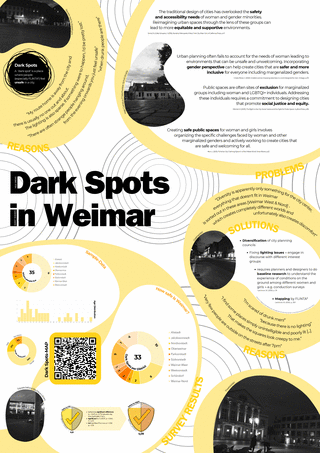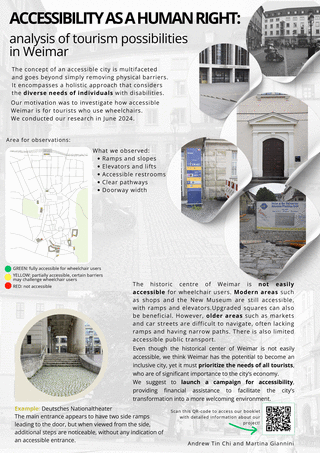The Bauhaus.Module "What do cities have to do with human rights?" has been devoted to the topic of human rights at the local level. During the seminar, students learnt what cities and local civil society can do to ensure that human rights and SDGs are promoted and implemented on the municipal agenda.
The Bauhaus.Module dedicated to exploring human rights at the local level. The seminar aimed to challenge the notion that human rights are exclusively the domain of the United Nations or other high-level organizations distant from everyday life. Throughout the course, students learned that cities and local civil society have significant roles to play in promoting and implementing human rights and the SDGs within municipal agendas.
The seminar was structured so that students first read and discussed academic articles on human rights as a field of study, followed by an examination of how these rights are localized and the challenges involved in this process. SDGs served as a prime example of international efforts that could be adapted to local contexts while being critically assessed. In addition to reading, a major part of the seminar featured guest speakers who provided insights on the SDGs, the university’s role, and the practical difficulties of applying human rights. Students were able to see how theoretical concepts could be implemented in their daily work and academic environment, including through an online session with guest speakers from Sweden.
The seminar resulted in three student projects on human rights topics relevant to Weimar:
- Accessibility as a Human Right: An analysis of tourism possibilities in Weimar (Andrew Tin Chi, Martina Giannini)
- Being Non-EU in Europe: The experiences of Bauhaus University’s students (Gizem Kozanoglu, Günsel Sentürk, Sofia Mauri)
- Dark Spots in Weimar: Documenting and mapping places where people, mainly FLINTA*, feel unsafe (Nele Drews, Ishrat Shaheen)
Students explored these topics through various research methods, including observation, photography, surveys, and workshops. They presented their findings in the final session of the seminar and showcased them at the Summaery 2024 exhibition. You can see the final posters underneath and the booklet here.



